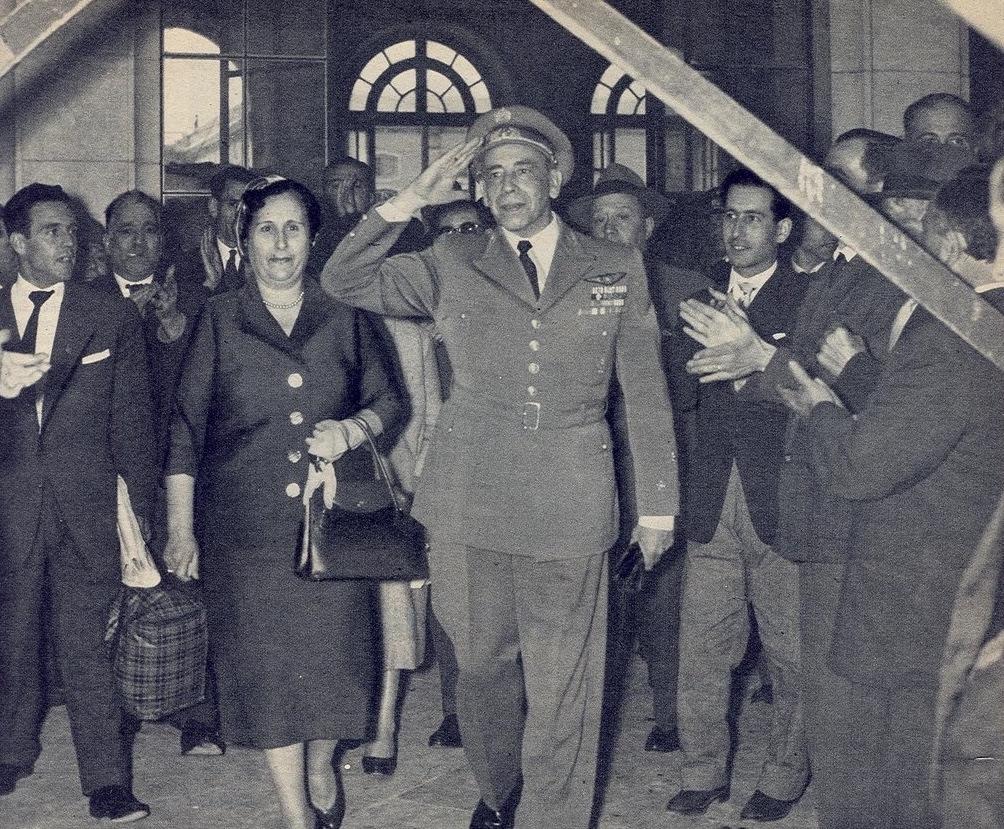Humberto Delgado Biografia
Discover the remarkable story of Humberto Delgado in his comprehensive biography
Everything You Need To Know About Humberto Delgado

Humberto Delgado
When countries name airports after people, it’s usually because they have achieved great success in their careers, performed heroic deeds and more – and that’s why Libson Airport is named Humberto da Silva Delgado, after a prominent diplomatic, military man and more.
In addition to being a general in the Air Force of Portugal, Delgado also made history as the person that founded Transportes Aéreos Portugueses, better known these days as TAP Air Portugal – a thriving airline that is the country’s flag carrier. He even ran for president of Portugal in the 1950s but his last years ended in exile and ultimately assassination.
But the story of Delgado’s life doesn’t end on such a negative note, because in the present day his character and history is highly respected among the Portuguese, as shown by the decision to name the major international hub Lisbon Airport after this pioneer. It was a choice that drew support from all political parties and showed that Delgado’s name and reputation were restored.
Whether you are planning a vacation to Lisbon on a flight that will arrive at Lisbon’s Humberto Delgado Airport, or you are just returning from a trip to Portugal, keep reading to learn all the key information that you should know about this fascinating man and his interesting life.
Quick facts about the life of Humberto Delgado
- Date of birth: May 15, 1906
- Place of birth: Torres Novas in Portugal
- Date of death: February 13, 1965
- Age at death: 58
- Place of death: Olivenza in Spain
- Wife: Maria Iva Theriaga Leitão Tavares de Andrade
- Number of children: Three
- Jobs: Diplomat, military, founder of TAP Portugal
The early years of Humberto Delgado
On May 15, 1906, in Brogueira – part of the Portuguese municipality of Torres Novas, Delgado was born as the eldest child and only son of Maria do Ó Pereira and Joaquim Delgado. They would go on to also have three girls, who were named Aida, Deolinda and Lídia.
After a relatively uneventful childhood, Delgado joined Lisbon’s military school Colégio Militar and studied there from 1916 until 1922. He was part of the revolution that took place on May 28, 1926, that led to overthrowing Portugal’s First Republic, replacing it first with the regime known as the Ditadura Nacional and later by the government known as the Estado Novo.
For many years Delgado was a loyal and respected member of the government, with roles including being the deputy national commissar of the youth organization Mocidade Portuguesa, procurator of the parliament’s Corporative Chamber, Portugal’s youngest-ever general in history, general-commander of the country’s paramilitary organization Legião Portuguesa and the national secretariat of the Portuguese civil aeronautics authority, among other positions.
Launching Portugal’s main airline
Delgado’s role as the top aviation official in the country explains how he came to found what would eventually be known as TAP Air Portugal. The airline was officially launched on March 14, 1945, and that year it bought two aircraft, both DC-3 Dakota planes. TAP Air Portugal stared its first-ever commercial route on September 19, 1946, which connected Lisbon with Madrid.
Thanks to his leadership, Portugal saw a rapid growth in its airline industry and connections to airports in other countries. Portugal officially earned its membership in the International Air Transport Association in 1948 and he oversaw a number of other important growths in the sector.
Running for Portugal’s presidency
Although Delgado continued to earn praise for his work in all aspects of government, including aviation and military, his life shifted when he decided to run for Portugal’s presidency in 1958.
By that time, Delgado’s political philosophy had started to evolve and started to diverge from the views of the government he had long supported. Delago ran against Américo Tomás, a naval minister backed by the existing regime. Delgado’s campaign generated intense opposition from the government, with nobody expecting that the candidate would win the election.
Once the votes were counted, it was reported that Delgado received fewer than 25 percent, with almost 75 percent voting for Tomás. Although there were rumors of some electoral fraud benefiting Tomás, he nevertheless became Portugal’s next president. And this is the exact point in Delgado’s long and until then illustrious career where his fortunes started to turn for the worse.
Years of exile and then death
After his failed run for the presidency, the military of Portugal exiled Delgado in 1958. He first took shelter in Portugal’s embassy of Brazil before moving to that South Americans country to live for a while, before later relocating to Algeria, bringing him back near to Portugal.
A few years later, in 1964, Delgado was in Rome when he created the Portuguese National Liberation Front, which represented his goal of overthrowing Portugal’s government. This would have required a military coup to achieve, which created even more enemies for Delgado.
Ultimately his opponents plotted to kill Delgado, and on February 13, 1965, a successful plot led him and Arajaryr Moreira de Campos, his secretary from Brazil, to an ambush that occurred close to Olivenza, a border town in Spain. Agents from Portugal’s government shot Delgado, killing him, and his secretary was strangled, ending their life stories.
Renaming Lisbon Airport
But in the years since, Portugal saw many massive changes, including a complete change in government and a fresh appreciation for everything beneficial that Delgado did for his home country – and that helped pave the way for naming Lisbon Airport after him.
The city council of Lisbon in a unanimous vote in February 2015 proposed changing the name of the airport from Portela to Humberto Delgado, drawing support across the political divide.
Just one year later, in February 2016, Portugal’s then-Prime Minister António Costa announced that the renaming of the airport would take place, in a tribute to the diplomat and military man. Supporters of the decision to name the airport Humberto Delgado noted in particular his crucial role in launching what would become TAP Air Portugal, as well as his other achievements.
